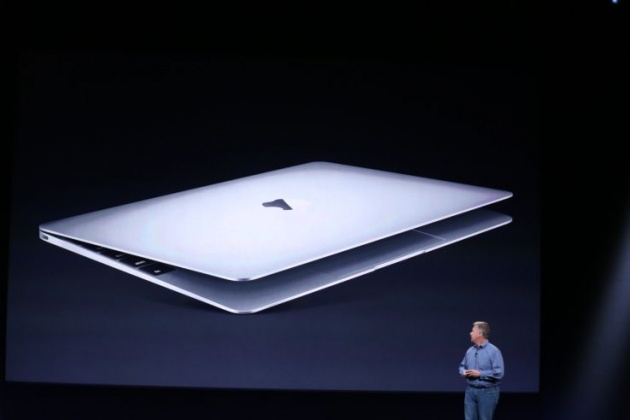
“Seriously, fuck them,” wrote one tweeter called M.J. The person was speaking about Apple and the new MacBook the company recently announced. There are countless other tweets and comments with the same sentiment. Right now there’s visceral hate directed at the company. A swathe of consumers feel betrayed by the stark design of the new MacBook. Our original post on the topic was shared over 25,000 times. It’s a polarizing design.
The new MacBook thinks different. It has more in common with a tablet than most laptops. Think of it as an iPad that has a keyboard and runs OS X. And like the iPad, it only has one port, which is the cause of the outcry.
Most computers have several ports scattered around the frame. There’s usually one for charging, a couple USB ports for various tasks, and some sort of port to output video. The new MacBook combines all three into a single USB-C port. This means users will not be able to, say, charge the laptop and an iPhone at the same time or input data from a flash drive while outputting video to an external monitor. Sure you’re going to have some nice accessories to do all these things down the line but this barebones approach is a pretty hard sell in a world where some laptops still have a serial port.
This is Apple’s world and we just live in it.
To Apple’s credit, the company must see a market for such a computer. The low-power Intel chipset that powers the computer likely doesn’t provide enough oomph to play computer games but it should render GIFs just fine. This is a couch computer. It’s a Facebook and Twitter machine. It even looks like a great programming computer. Watch the Apple event yesterday. The company didn’t demonstrate any of its new software on the new MacBook including the Photos app. Simply put, the new MacBook isn’t for photo editing. It’s for Facebooking.
Expectations are high for Apple. Had a company like HP or Lenovo released a watered-down computer like the new MacBook, there likely wouldn’t have been an outcry, but rather a collective chuckle. For some reason, a swath of Apple fans expects the company to build every product to meet their needs. If it doesn’t, feelings of betrayal sneak in. This happened with the original MacBook Air.
Apple released the first MacBook Air in 2008. It cost $1,799 and, like the new MacBook, was a svelte wonder of technology. But it lacked ports. The industry cried foul, pointing out that it only had a power port, a single USB port and a Micro-DVI port. It was missing a DVD-ROM and Ethernet port, a travesty in an era of burgeoning Wi-Fi and the slow decline of physical media. In 2008 this was a big deal. Software was still shipped on disks and Wi-Fi was hard to find. Apple fans felt betrayed. They felt forgotten. If a customer wanted Apple’s latest and greatest machine, they would have to buy into interacting with a computer without a CD drive or wired Internet.
Eventually, Apple dropped Ethernet from its entire MacBook line and the MacBook Air is now the least expensive laptop Apple offers.
The new MacBook joins the MacBook Air and MacBook Pro. It’s not a replacement for either – at least not yet. But it bears a nameplate previously retired: MacBook. It’s not an Air, it’s not a Pro. It’s just a MacBook, which was long the company’s stalwart, low-cost machine against the rising tide of Microsoft Windows.
It’s highly likely that in a generation or two that Apple will drop the price of the MacBook to under a thousand. Will the MacBook Air survive? Maybe not. Apple is steadily making the MacBook Pro smaller. It’s easy to see a future where the MacBook will be the company’s only inexpensive laptop and a slightly slimmer MacBook Pro will be the other option if you want silly things like multiple USB ports, SD card slots and a MagSafe power adapter.
Until then, a 13-inch MacBook Air is a better buy than the new MacBook. The battery lasts nearly as long, the computer is more powerful and it has plenty of ports. Plus, nobody has ever said that they wished their MacBook Air was just a bit thinner. But maybe, soon, they will.



